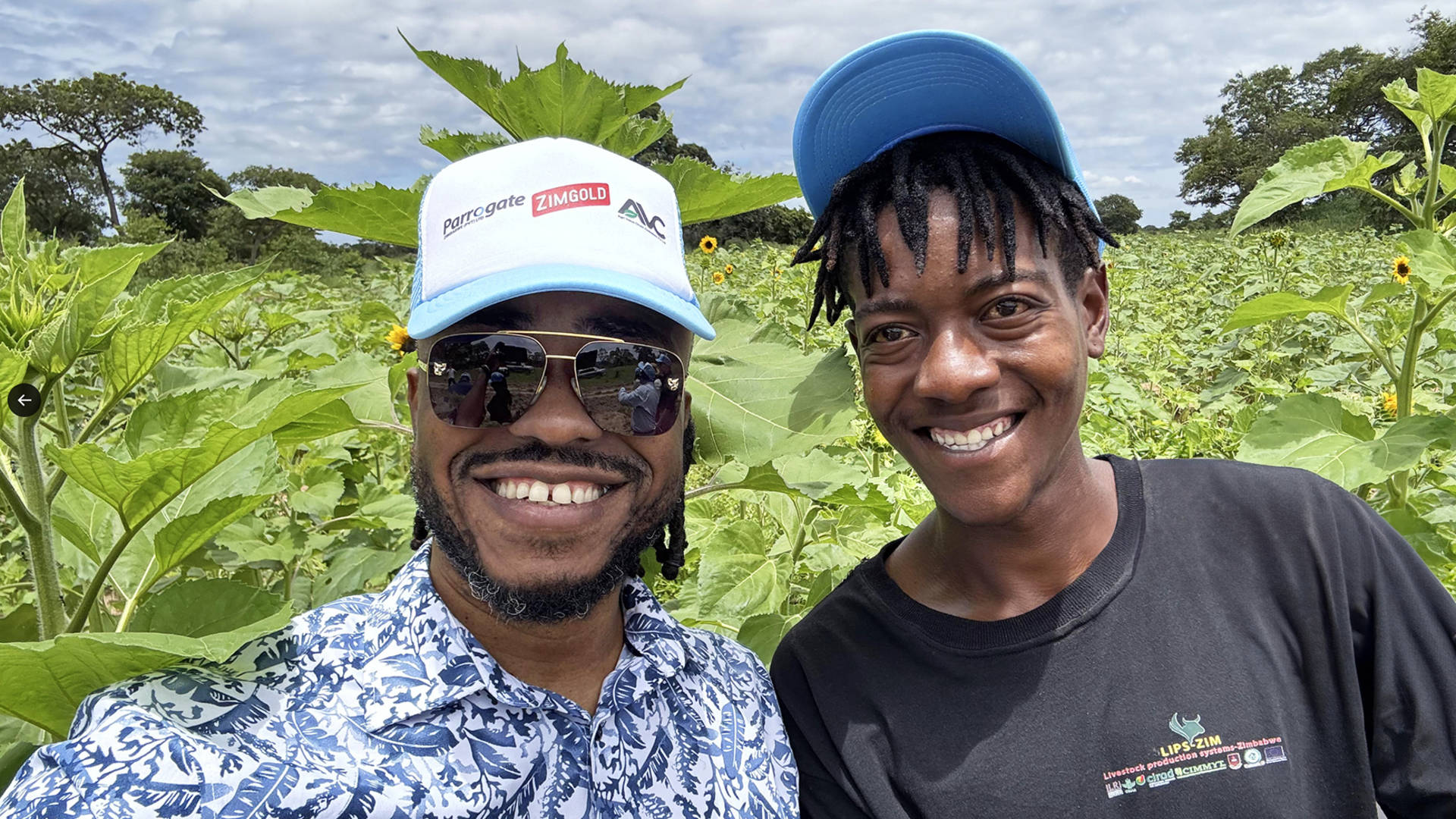We use Cookies. Read our Terms
- News
- In the Field: “We are cultivating hope!”
In the Field: “We are cultivating hope!”
A delegation of the OPEC Fund’s Private Sector department visits Zimbabwe and observes how trade is strengthening food security

Agriculture is the backbone of Zimbabwe’s economy, providing employment and income for about two-thirds of the population while contributing 40 percent of total export earnings, according to the Food and Agriculture Organization of the United Nations (FAO).
The OPEC Fund is taking this into account in its work by allocating more than half of its project loans to this sector. Recent examples include a horticulture project supporting smallholder farmers, an agriculture cluster project benefiting almost 350,000 people and an irrigation project spanning four provinces.
What these and similar efforts have in common are goals such as strengthening food security, reducing rural poverty and creating economic opportunities for local residents. For this to succeed the ability to transport and trade goods is of paramount importance. Here again the OPC Fund is leading from the front.
Zimbabwe’s most important trading partner is the Southern African Development Community, which receives some 30 percent of its northern neighbor’s agricultural exports. The border post at the town of Beitbridge located on the Limpopo River, is “the busiest border crossing in southern Africa and delays are common,” says the Zimbabwean daily The Herald.
Strengthening regional trade and deepening value chains is a goal of the OPEC Fund. A mission by Private Sector Senior Investment Manager Olumuyiwa Osibanjo to Zimbabwe provided an opportunity for a first-hand account of its delivery.
During his visit Mr. Osibanjo met with partners such as the commodities trader ETC Group and saw several agricultural and agro-processing sites. Visiting a sunflower farm run by a 22-year-old entrepreneur who had expanded his land from two to eight hectares in just one year, Mr. Osibanjo said: “The future of Africa’s food security is rooted in the strength of its farmers. When we empower smallholders, who feed 80 percent of the continent, we are cultivating not just crops, but we are cultivating resilience, prosperity and, importantly, hope!”
A central part of the mission was the engagement with ETC Group as the group is a major player in Zimbabwe’s agro-processing sector with investments in fertilizer blending, edible oils, textiles and renewable energy. The OPEC Fund has collaborated with ETC Group in multiple financing initiatives to strengthen agricultural value chains and support smallholder farmers. The visit provided an opportunity to assess the impact of these investments and explore areas for further engagement.
The mission also witnessed ETC Group’s commitment to renewable energy and climate resilience. The company is currently planning a 100 MW solar facility that will serve various activities including agribusiness. The facility is being set up to reduce the dependence on diesel-powered electricity. Excess energy will be sold to third parties and fed into the grid. It will reduce the carbon footprint while ensuring energy security.
During his mission Mr. Osibanjo also visited other local companies gaining a wideranging overview, deepening existing relationships and exploring opportunities for future engagements.
At the Kynoch Fertilizer Blending Facility the OPEC Fund representative was able to see innovative approaches to soil health and sustainable fertilizer production in order to optimally manage crops development. ZimGold Oil Industries demonstrated how locally sourced oilseeds are processed to support smallholder farmers and sustain Zimbabwe’s edible oil industry.
David Whitehead Textiles demonstrated an example of the revitalization of Zimbabwe’s textile sector and its impact on cotton farmers. A meeting with Agri Value Chain Zimbabwe offered an opportunity to assess the role of cotton ginning and processing in boosting the local industry.
Mr. Osibanjo was joined by representatives from partner development finance institutions such as the Dutch entrepreneurial development bank FMO, the German development finance institution DEG and the regional African Trade and Development Bank TDB. He said: “Agriculture is not just an economic activity; it is a means of building stronger and more resilient communities. When we invest in farmers and sustainable agricultural practices, we are investing in the future of entire nations.”
Through continued collaborations with local and regional partners, the OPEC Fund remains committed to driving agricultural development and strengthening food security in Zimbabwe. As the country says in one of its proverbs: “A small house will hold a hundred friends.”
The OPEC Fund is one of those friends as also demonstrated in its food security actions. Following the successful launch of a US$1 billion credit line in 2022, which is now fully Photo: Melinda Fawver/Shutterstock committed, the organization is now providing another US$2 billion in financing until 2030, especially addressing the impact of climate change on food security.
According to a recent economic analysis by the University of Oxford and London School of Economics, transforming the global food system could realize benefits of up to US$10 trillion per year. Key areas of action include taxing the most damaging and unsustainable foods, subsidizing farmers to produce healthy foods and use sustainable practices and investing in new agricultural technologies that can improve efficiency while reducing emissions. Global adoption of a predominantly plant-based diet accounted for around 75 percent of the total health and environmental benefits from the transformation and would contribute an additional 2 percent per year to global GDP on average, the study finds.